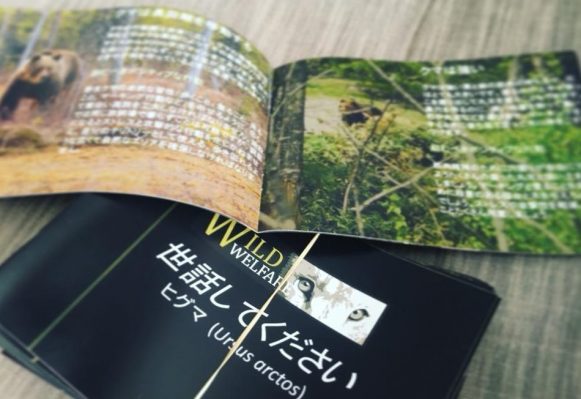Translation Efforts For Welfare Results
Adapting to different environmental challenges is something that many of the animals that we work with do incredibly well. In light of the challenges imposed by the coronavirus pandemic, we are emulating nature’s example by adapting too.
Whilst the COVID-19 pandemic has temporarily grounded our in-country training workshops, we are still in frequent communication with our in-country partners, making sure that we can provide guidance, support and instruction where needed. With this in mind, we are focusing some of our efforts on one of our resource projects in order to ensure that animal welfare information is accessible to more of our target audiences within the countries we work in.
Our Care For Us guides provide simple information on species specific needs and ways in which to encourage good welfare standards. Helping animal care staff to understand the behavioural and physical needs of the species in their care and accommodating those needs within the environment is a way in which good animal welfare standards can be met.
These short but informative guides take the reader through a series of behaviours that are important to that species, and how these can easily be accommodated for in captivity.
The simple nature of the guides encourages animal carers to consider easy solutions to welfare issues without requiring Wild Welfare staff to be physically present. So far, the Wild Welfare team have produced 26 Care For Us guides representing a wide range of species from snakes and parrots to elephants and lions.
Initially these guides were all published in English but given that we work in more than 10 different countries, we knew that we needed to diversify the number of languages that they were available in to improve accessibility to them.
Over the course of 2019, the team trained nearly 1,000 people in animal welfare concepts across 90+ facilities around the world, impacting thousands of animals. Translating the guides into various languages can help us to reach these facilities, and more, without being in-country.
Translating our guides began with bears. The first guide we ever translated was for brown bears (Ursus arctos) which was inspired by our work in Japan.
“We actually translated the bear care guide a few years ago. We were conducting a bear management workshop in Hokkaido, Japan to work towards improving captive conditions in Japans’ bear parks,” said Georgina Groves, Executive Director, Wild Welfare.
“Having the guide translated into Japanese really helped get our message across.”
Since the translation of the bear care guide into Japanese, we have since translated a guide for Asian small-clawed otters (Aonyx cinereus) and Asian elephants into Japanese, a squirrel monkey (Saimiri spp.) guide into Portuguese and a binturong (Arctictis binturong) guide into Thai. These species and languages reflect our findings from work in the field where we often see particular species kept in particular countries. We want to maximise the impact each of these guides can create therefore we choose the species and translation language very carefully.
Using our knowledge base of the culture within each country also impacts the Care For Us guides. For example, we decided to keep the English instructions alongside the Japanese in the otter care guide due to the fact that we know that many Japanese people like to have the opportunity of practising their English skills. Having the two languages side by side helps them to do this whilst still learning about changes they can make for animal welfare improvements.
Sarah Blake, Wild Welfare’s Projects and Development Manager, said: “We find that many of the animal care staff we work with are keen to push forward animal welfare improvements within their facility, they just don’t know where to start.
“These guides not only offer advice on how to do this but an opportunity for a mindset change in which animal care staff can pay close attention to the species in their care and understand how to consider their needs.”
Having our guides translated into three different languages is a big achievement as we are passionate about making animal welfare information accessible to all animal care staff. We will continue to translate our Care For Us guides into different languages and providing them to our contacts for use in-country.
To see our full range of Care For Us guides, click here.
~ENDS~
Notes to Editors
For more information or interview requests please contact Wild Welfare on communications@wildwelfare.org
Wild Welfare is a global organisation committed to improving animal welfare for captive wild animals. By uniting the world’s leading zoos, zoo associations and animal welfare organisations, we build trusting partnerships that help provide long-term solutions to critical wild animal welfare issues.
Our vision is to end the suffering of captive wild animals around the world and ensure full and sustainable protection is given to all animals in human care. Find out more at www.wildwelfare.org. Registered charity in England (no.1165941).





